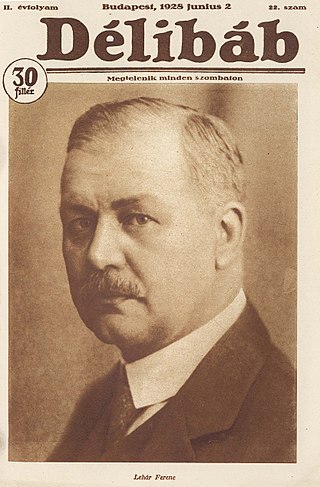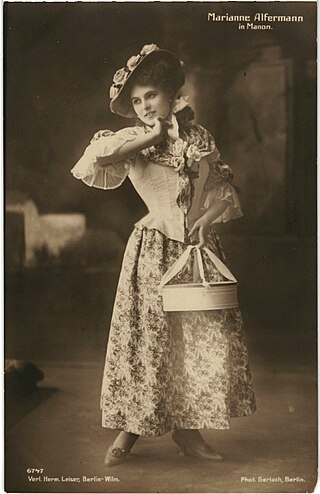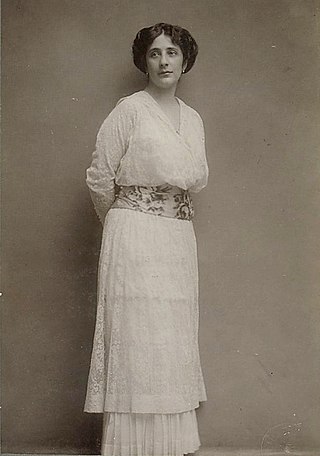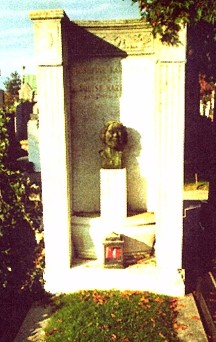
Vera Schwarz (10 July 1888 - 4 December 1964) was an Austrian soprano, known primarily for her operetta partnership with Richard Tauber.

Vera Schwarz (10 July 1888 - 4 December 1964) was an Austrian soprano, known primarily for her operetta partnership with Richard Tauber.
Vera Schwarz was born in Zagreb, the daughter of Hungarian-Croatian aviation pioneer David Schwarz. She studied in Vienna with Philipp Forstén and gave her debut in 1908 at the Theater an der Wien. From 1908 to 1912 she was a member of the Grazer Oper, and from 1911 to 1913 she sang at the Johann Strauss Theater in Vienna. [1] After performing in Karlsbad she came to the Hamburger Stadttheater in 1914. From 1918 to 1922 she was an ensemble member of the Staatsoper Unter den Linden in Berlin.
From 1921 to 1930 Schwarz appeared often as a guest in Vienna, performing the title roles of Tosca and Carmen , Eva in Die Meistersinger von Nürnberg , Sieglinde in Die Walküre , Countess in The Marriage of Figaro and Rachel in La Juive , receiving the title "Kammersängerin"". It was during this time that she taught her Vienna Staatsoper colleague Leo Slezak's daughter (and Walter Slezak's brother), Margarete. In her book Der Apfel fällt nicht weit vom Stamm Margarete Slezak recounts their meeting: "I paid Vera Schwarz a visit, and asked her to test my voice. Frau Schwarz found it would be worthwhile to train my voice, and promised me, while keeping this strictly secret from my family, to give me lessons. She lived with her mother, a delicate yet unbelievably energetic lady. Mama Schwarz missed no performance of her daughter. She sat in the middle of the parquet and influenced the audience's applause particularly loudly. While doing so she would turn left and right claiming loudly: "Charming, magnificent! Who is this God-gifted singer?". One time an acquaintance sat behind, unseen by her. He bent forward and said for everyone to overhear: "But, gnädige Frau, surely you would know that!" [2]
From 1929 to 1933 Schwarz was a member of the Metropol-Theater Berlin ensemble, returning in 1931 to 1933 to the Staatsoper Unter den Linden. She became well known as Richard Tauber's operetta partner, and sang often in this genre, almost always with Tauber. [3] She appeared with Tauber in the Berlin Premiere of Lehar's operetta Paganini in January 1926 at the Deutsches Künstlertheater , and in a new production at the Theater des Westens in April 1930, both conducted by the composer. She and Tauber appeared, again under the composer's baton, in the October 1929 premiere of Das Land des Lächelns at the Metropol Theater in Berlin.
Schwarz and Tauber had first appeared together in Carmen at the Berliner Staatsoper in May 1921, and were often to appear together in operas such as Die Tote Stadt , Un Ballo in Maschera , Tosca , and Die Fledermaus at the Wiener Staatsoper. It was here they last appeared together in Das Land des Lächelns in February 1938. [4]
She appeared in the opera houses of Amsterdam, Budapest, London, Munich, and Paris, where she performed Tosca in 1928 at the Opéra-Comique Paris. In 1929 she sang Octavian in Rosenkavalier at the Salzburger Festspiele. One of her last roles was as Verdi's Lady Macbeth at the 1939 Glyndebourne Festival.

Having Jewish paternal grandparents, Schwarz was forced to leave Germany in 1933, singing in Vienna, giving a world premiere of a work by Salmhofer [5] in 1935, and appearing as late as 1938 with Tauber in Lehar's Das Land des Lächelns. A few months after this performance, she emigrated first to England (where she sang Lady Macbeth in Glyndebourne), then to the United States, where she appeared in Chicago and in San Francisco, but concentrated mostly on concert appearances (including concerts at the Los Angeles German-Jewish club) [6] ), and teaching in New York, [7] and in Hollywood. Here she coached Risë Stevens [8] and Marni Nixon. [9]
Schwarz returned to Vienna in 1948, teaching and giving masterclasses in the Salzburg Mozarteum. She died in Vienna in 1964 and was cremated at Feuerhalle Simmering, where also her ashes are buried (Abt. MH, Nr. 359).
In 2011, a street in Vienna's 23rd district was named Vera-Schwarz-Gasse in her honour. [10]

Franz Lehár was an Austro-Hungarian composer. He is mainly known for his operettas, of which the most successful and best known is The Merry Widow.

The Komische Oper Berlin is a German opera company based in Berlin. The company produces operas, operettas and musicals.

The Land of Smiles is a 1929 romantic operetta in three acts by Franz Lehár. The German language libretto was by Ludwig Herzer and Fritz Löhner-Beda. The performance duration is about 100 minutes.

Richard Tauber was an Austrian lyric Tenor and film actor. He sang the tenor role in number of operas, including Don Giovanni by Mozart and Da Ponte.

The Vienna Volksoper is an opera house in Vienna, Austria. It produces three hundred performances of twenty-five German language productions of opera, operetta, musicals, and ballet, during an annual season which runs from September through June.

Ljuba Welitsch was an operatic soprano. She was born in Borisovo, Bulgaria, studied in Sofia and Vienna, and sang in opera houses in Austria and Germany in the late 1930s and early and mid-1940s. In 1946 she became an Austrian citizen.

Jarmila Novotná was a Czech lyric coloratura soprano and actress. From 1940 to 1956, she was a star of the Metropolitan Opera.

Paganini is an operetta in three acts by Franz Lehár. The German libretto was by Paul Knepler and Bela Jenbach.

The Land of Smiles is a 1930 German operetta film directed by Max Reichmann and starring Richard Tauber, Mary Losseff and Hans Mierendorff. It is an adaptation of the operetta The Land of Smiles composed by Franz Lehár. Lehár himself appeared in the film in a small role. It was shot at the Emelka Studios in Munich with sets designed by the art director Hans Jacoby.

Margit Bokor, born Margit Wahl, was a Hungarian operatic soprano. She created the role of Zdenka in Arabella by Richard Strauss at the Semperoper in 1933, but then had to leave Germany. She was a member of the Vienna State Opera from 1934 to 1938. She moved to Paris, then emigrated to the United States in 1939, continuing her career at opera houses of the Americas.
Ursula Wendt-Walther was a German operatic soprano. She was a member of the Staatstheater Nürnberg for decades, where she performed leading roles by Mozart, Strauss and Wagner. In contemporary opera, she appeared as Marie in Bernhard Zimmermann's Die Soldaten, and created the role of Marei in Zemlinsky's Der Traumgörge.
Ferry Gruber was an Austrian-German tenor in opera and operetta. A member of both the Bavarian State Opera and Staatstheater am Gärtnerplatz in Munich for half a century, he focused on roles of the buffo genre and operetta. He made recordings, appeared on radio and television, performed internationally at major opera houses and festivals, and worked also as an operetta director and a private voice teacher. He was a favourite with the audience, and received the title Kammersänger.
Rosl Schwaiger was an Austrian operatic coloratura soprano. She was a member of the Vienna State Opera and the Bayerische Staatsoper, known for singing Mozart roles such as Blonde, Susanna and Zerlina. She appeared at European opera houses and festivals and was especially popular at the Salzburg Festival, where she appeared for decades in opera and sacred concerts.

Adele Kern real name Adele Kern-Klein was a German operatic and operetta coloratura soprano. She was known for her technical perfection and joy of playing. From 1927 to 1935, she sang at the Salzburg Festival as well as at the state operas of Vienna, Berlin and Munich.

Marianne Elisabeth Felicitas Alfermann was a German soprano and actress.
Hans-Heinz Bollmann was a German operatic and operetta singer tenor.

Bella Paalen, real name Isabella Pollak was an Austrian-American operatic contralto of Hungarian origin. She was engaged for 31 years at the k.-k. Hofoper in Vienna, later the State Opera, was appointed Kammersängerin there in 1933 and had to leave the country after the Anschluss because of her Jewish origins.

Anja-Nina Bahrmann is a German opera, operetta, Lied and concert soprano.
Vera Schoenenberg is a German soprano in opera, operetta, Lied and oratorio, and a lecturer at the Mozarteum University Salzburg.

Louise Kartousch was an Austrian character dancer, opera and operetta soprano.